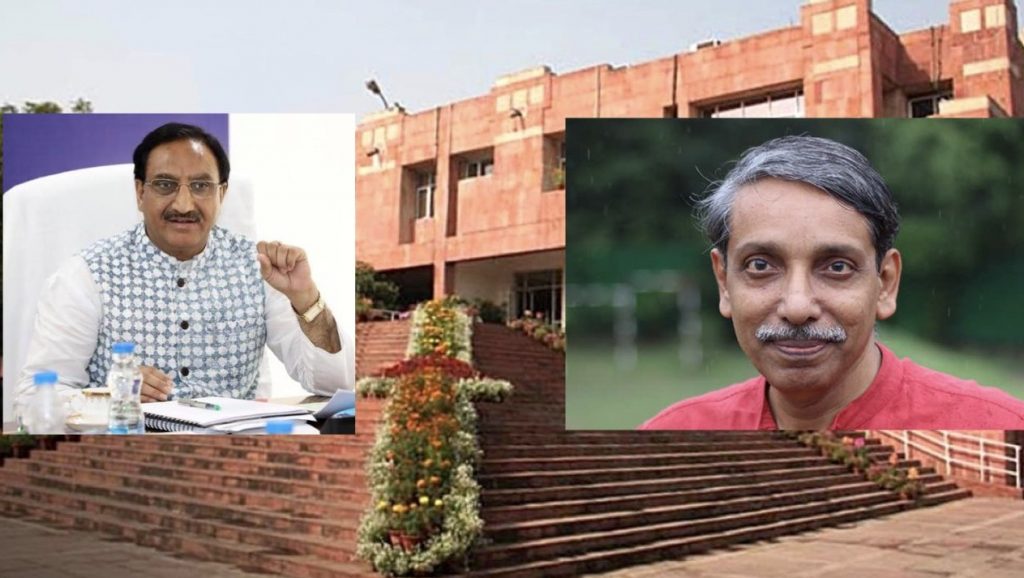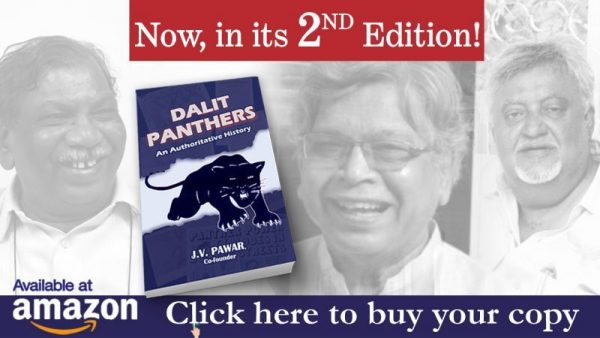If you need to see how reservations – and therefore representation and social justice – are reduced to rhetoric and constantly undermined at the stage of implementation, the recruitments by Jawaharlal Nehru University are proof. The JNU Teachers’ Association (JNUTA) has written for the second time to the newly renamed Union Ministry of Education, drawing its attention to the seriousness of the issue after its first letter failed to elicit a response.
The letter dated 1 October 2020 addressed to Amit Khare, secretary, Higher Education, and signed by JNUTA Vice-President Ajmer Singh Kajal and Secretary Surajit Mazumdar, says, “It has been the JNUTA’s consistent position, since we first highlighted this in our communication dated 6 March 2020, that JNU had violated the national reservation policy and drastically cut the posts reserved for SC [Scheduled Caste] and ST [Scheduled Tribe] candidates in the Professor and Associate Professor cadres by failing to adhere to the backlog rule while recasting the rosters in 2019.”
Until 1997, a sequence was followed to attain the quotas for SCs and STs in the vacancies that arose. This system was then replaced by one that treated the department as a unit and reserved posts department-wise for SCs and STs. The University Grants Commission guidelines for reservation for SCs and STs in teachers’ recruitment by universities, treating the university cadre (assistant professors, associate professors and professors treated separately) as a unit, were issued in 2006 and the guidelines for reservation for OBCs followed in 2007. This followed the passage of the Central Educational Institutions (Reservation in Admission) Act 2006, notified in early 2007, which set aside 27 per cent seats in admissions to central universities for OBC students. To accommodate the reserved seats, the central government also sanctioned a 54 per cent increase in the student strength of universities.
As the intake of students increased, new faculty positions had to be created to meet the increased teaching needs in these universities. By 2011, the increase in the student strength had been achieved and all the new teaching positions identified. The reservation for OBCs applied only to the posts of assistant professor and only SCs and STs continued to benefit from reservation in promotion. The guidelines pertaining to reservations in public employment issued by the central government’s Department of Personnel and Training (DoPT) applied to universities, too. For example, there was a provision for up to 50 per cent of the posts advertised in a particular cycle (current vacancies) to be reserved. This cap had been set by court judgments even before the Mandal Commission made its recommendations in the early 1980s.
As far as JNU was concerned, even after advertising and readvertising the vacancies in the period 2011-2016, the reserved positions remained unfilled. Then in 2019, when the Supreme Court upheld a 2017 Allahabad High Court judgment that a university department and not the entire university cadre is to be treated as a unit while reserving vacant positions for recruitment, there was an uproar against the ruling, which if implemented, would have led to only a handful of positions being reserved. The central government thus issued The Central Educational Institutions (Reservations in Teachers’ Cadre) Ordinance 2019 restoring the university cadre as a unit.

The enactment of the 103rd Constitution Amendment Bill followed, introducing 10 percent reservations for the Economically Weaker Sections (EWS). Later, the provision for reservation for EWS was incorporated in a Bill meant to replace the ordinance and was introduced in Parliament for enactment. The Central Educational Institutions (Reservations in Teachers’ Cadre) Act 2019 thus came into existence.
It is on the basis of this Act and the guidelines under the Act, and the guidelines of the DoPT and University Grants Commission (UGC) that reservations are to be implemented in recruitments by universities.
JNUTA’s letter to the Union Ministry of Education pointed out that these guidelines were being flagrantly violated.
As mentioned earlier, up to 50 per cent of current vacancies can be reserved whether for promotion or direct recruitment. But JNU has been inventing its own rules. For direct recruitment to posts of Associate Professor and Professor, the cap on reservations for SCs, STs and OBCs has been set at 22.5 per cent of current vacancies, the argument being that when the vacancies were announced in 2011, only posts of Assistant Professor were reserved for OBCs, not of Associate Professor and Professor. Now, these positions are reserved for the OBCs, too, yet they, together with SCs and STs, have been assigned only 22.5 per cent of the current vacancies. The rule put down by court judgments even preceding the Mandal Commission judgments is that up to 50 per cent of the current vacancies are to be reserved if that is what it takes to bring the proportions of SC, ST and OBC posts in the cadres (associate professor, professor in this case) in the university to their entitled 15 per cent, 7.5 per cent and 27 per cent. In fact, even when these positions were reserved only for SCs and STs, they were still to be assigned up to 50 per cent of the current vacancies. If their quotas in the cadres were still unmet, the shortfall would be carried over to the next cycle of recruitment. Hence, at present, both SCs and STs, and OBCs are massively shortchanged in direct recruitment to posts of Associate Professor and Professor.
Also Read: OBC quotas apply to profs and associate profs too, but there is the glass ceiling
When it comes to promotions, too, only a maximum of 22.5 per cent of current vacancies are being set aside for SCs and STs when up to 50 per cent can be assigned to raise their proportion in the cadres (Associate Professor and Professor) to the envisaged 15 per cent and 7.5 per cent, respectively.
The rules on backlog vacancies are also being flouted. A backlog reserved vacancy would be a vacancy that was advertised earlier but wasn’t filled. It would be readvertised but wouldn’t be considered as part of the current vacancies being reserved and hence the 50 per cent cap wouldn’t apply to it. But JNU has been treating a vacancy as a backlog vacancy only if candidates have been interviewed for the position and eligible candidates haven’t been found. In effect, the university has been de-reserving positions for which it hasn’t interviewed candidates.
JNUTA has also written to the Union Ministry of Social Justice and Empowerment about these violations of laws and guidelines for reservations in recruitment of teachers by the JNU administration. There has been no response so far to either of its two letters. Social justice in universities is obviously not a priority for the Bharatiya Janata Party-led government at the Centre.
Prof Surajit Mazumdar, secretary, JNUTA, says, “JNUTA hasn’t decided its next course of action but we have sought an appointment with the UGC Chairman to discuss this and other issues. We are also waiting for the Delhi High Court’s judgment on a case filed by a few individuals against the JNU administration in the matter.”
Copy-editing: Amrish Herdenia






